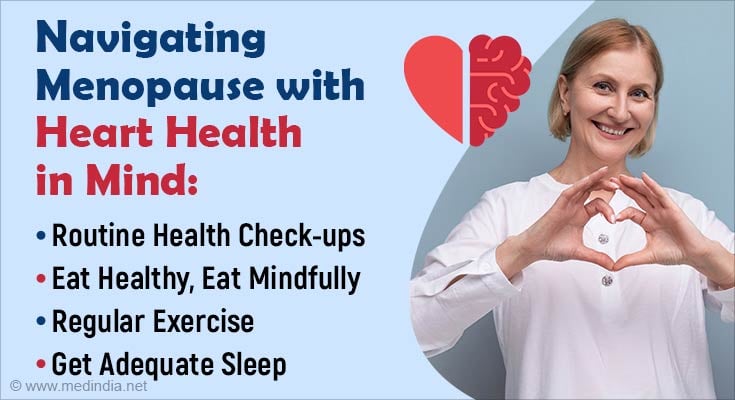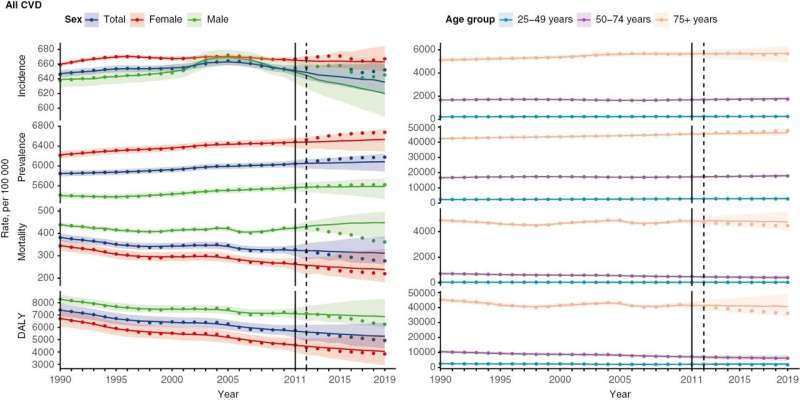From the foods you savor to the steps you take, every choice influences the fate of your cardiovascular health and well-being. The impact isn’t always immediate, however. The choices you make as early as your teen years can have an effect on your heart health in the long run.
Heart disease is the leading cause of death in the United States, causing approximately 1 in every 5 deaths. Though not all risk factors for heart disease can be avoided, there are many steps you can take to lower your risk for heart disease and ensure you’re living a heart-healthy lifestyle.
| Rank | Diet | Overview |
| No. 1 | DASH Diet | The DASH diet is a flexible, balanced and heart-healthy eating plan promoted by the National Heart, Lung and Blood Institute. |
| No. 2 | Mediterranean Diet | This diet is based on the traditional way of eating in the countries that border the Mediterranean Sea. The diet primarily consists of plant-based foods, whole grains, beans, nuts, seafood, lean poultry and unsaturated fat from extra-virgin olive oil. |
| No. 3 (tie) |
Flexitarian Diet | With a flexitarian diet, also known as a semi-vegetarian diet, you don’t have to completely eliminate meat to reap the health benefits associated with vegetarianism. |
| No. 3 (tie) |
Ornish Diet | The Ornish diet is best known for reversing heart disease, but followers can customize the plan to their goals – whether that’s losing weight, lowering blood pressure or preventing cancer. |
| No. 5 (tie) |
MIND Diet | The MIND diet, which stands for Mediterranean-DASH Intervention for Neurodegenerative Delay, takes two proven diets – DASH and Mediterranean – and zeroes in on the foods that improve brain health. |
| No. 5 (tie) |
TLC Diet | The Therapeutic Lifestyle Changes diet calls for eating plenty of vegetables, fruits, bread, cereals and lean meats. The guidelines are broad enough that you’ll have a lot of latitude with what you eat. |
What Is Heart Disease?

(Getty Images)
Heart disease conditions can range from issues that affect the heart muscle directly to problems with the surrounding blood vessels that supply the heart and other parts of the body.
Risk Factors for Heart Disease
As your age increases, so does your risk for heart disease. People ages 65 and older are more likely to experience a heart attack, have a stroke or develop coronary heart disease and heart failure, according to the National Institute on Aging.
Age influences your risk for heart disease due to a number of factors, including cumulative effects of lifestyle choices and the natural aging of your body and the cardiovascular system.
Historically, women typically have a lower incidence of heart disease than men. However, heart disease is the leading cause of death for both men and women in the U.S., according to the Centers for Disease Control and Prevention.
Women are often underrepresented in studies for heart disease, and there’s a general lack of education and awareness surrounding heart disease and women, which may contribute to the discrepancies in diagnosis. Only about 56% of women in the U.S. recognize heart disease as their number one killer, according to a national survey from the American Heart Association.
Family history of heart disease plays a big role in your individual risk.
“If someone comes in saying, ‘My brother and father all had heart attacks at age 40,’” then that’s reason to be more concerned about early cardiovascular disease, says Dr. Jennifer Lee Wong, a cardiologist and medical director of non-invasive cardiology at MemorialCare Heart and Vascular Institute at Orange Coast Medical Center in Fountain Valley, California.
According to Dr. Dmitriy Nevelev, the associate director of outpatient cardiology at Staten Island University Hospital in Staten Island, New York, you should be evaluated by a cardiologist if there’s a man in your family history who had heart disease diagnosed at younger than 55 years old, or a woman in your family with heart disease diagnosed at 65 years old or younger. If a cardiologist isn’t available, then you should visit your primary care doctor to assess what risk factors you carry.
Health conditions like hypertension, high cholesterol levels, autoimmune disorders and diabetes are major risk factors for cardiovascular disease.
Underlying health conditions can directly affect the structure and function of the heart and blood vessels, making your cardiovascular system more vulnerable to disease.
Overtime, excessive alcohol use can contribute to a slew of health problems, including high blood pressure and heart disease. Smoking is also a major contributor to heart disease. Smoking causes your blood vessels to become swollen and inflamed, which can narrow the blood vessels and lead to heart conditions.
Regular physical activity is crucial for maintaining heart health and preventing conditions that contribute to heart disease.
Being active helps strengthen the heart muscle, which makes it more efficient at pumping blood, whereas inactivity can lead to a weaker heart, causing difficulty delivering blood and oxygen to your heart and the rest of your body.
Low levels of exercise can also lead to weight gain and cause obesity, which is associated with an increased risk for heart disease due to factors like insulin resistance, inflammation in the body and excessive strain on the cardiovascular system.
A poor diet is a significant contributor to developing heart disease. Foods high in saturated and trans fats, like fried foods, full-fat dairy products and processed foods can raise your LDL, or “bad,” cholesterol levels, which is a major risk factor for heart disease.
Excessive sodium and sugar intake also increase your risk. Sugary beverages, foods rich in added sugars, processed foods and restaurant or fast food meals are all foods that can have a negative impact on your overall health.
Lacking intake of fruits and vegetables also may mean you’re missing out on essential nutrients, antioxidants and fiber that support your heart health and decrease your risk for heart disease.
You should regularly be getting seven to nine hours of good sleep per night.
Chronic fatigue or not sleeping well contributes to higher blood pressure and cardiovascular disease, Wong says.
“It’s not just about the quantity of sleep, but the quality,” Nevelev says. “If people are taking medicines to put them to sleep, it’s not necessarily the same quality of sleep that they would get with a natural eight hours of rest.”
Stress affects our bodies in a couple of ways.
“First, on the molecular and physiologic level, stress causes us to keep more weight – more difficulty losing weight, more propensity to gaining weight,” Nevelev says.
Carrying extra weight on your body increases your risk for heart disease.
Stress also increases the amount of inflammation in our body. Plus, it also prevents us from doing things that tend to reduce risk of heart disease. “People who have increased stress tend to have less time and less motivation to exercise or eat more healthfully,” Nevelev says.
Screening for Heart Disease
Doctors use a combination of measures to screen for heart disease and assess their patient’s cardiovascular health. Your doctor will typically start by taking your medical history and conducting a physical examination.
Whenever assessing someone’s baseline risk of developing heart disease, there are modifiable and nonmodifiable risk factors that your doctor evaluates, Nevelev says.
Modifiable risk factors for heart disease are those that you can change or control through lifestyle modifications or medical interventions. Not all risk factors are modifiable, such as age, gender and family history, but others can be addressed to significantly reduce your risk of developing heart disease.
“We are doing a lot more testing these days on patients who have a strong family history to check for certain biomarkers,” Nevelev says.
For example, your doctor will likely check your lipoprotein (a), which is a form of low-density lipoprotein, because there’s a strong established correlation with a lifelong risk of developing heart disease. Blood tests are also used to measure cholesterol levels and triglycerides.
Depending on your individual risk level or symptoms that have surfaced, your doctor may order imaging tests or other tests like an electrocardiogram, which records electrical activity of the heart and can detect irregularities in heart rhythm, signs of a heart attack or other abnormalities.
Steps to Lower Your Risk for Heart Disease
“I often recommend the DASH diet, or dietary approaches to stop hypertension,” Wong says.
The DASH diet emphasizes fruits and vegetables, whole grains, lean protein and low-fat dairy and avoiding saturated fats, especially red meats that are high in saturated fats, and minimizing sweets intake.
“These diets have been well documented to decrease your risk of cardiovascular disease,” Wong says – both for those who are prone as well as those who don’t have underlying genetic tendencies.
- Increase the amount of omega-3s you consume. Omega-3s are a high-quality fat that have anti-inflammatory benefits and have been shown to decrease the amount of plaque that develops on your arteries. They are found in foods like in fatty fash, walnuts, avocado and extra-virgin olive oil.
- Increase your fiber intake. High-fiber diets improve your overall intestinal microbiome, or the bacteria that resides in your intestines, which can decrease the overall inflammation in the body.
- Minimize the amount of refined carbs you consume. Carbs are an essential part of your diet, but the average American diet sets you up for way too many refined carbs, Nevelev says. Instead of a large portion of pasta, aim for a serving that’s about the size of your fist.
The American Heart Association promotes 150 minutes of moderate intensity exercise per week.
“Start with little changes,” Wong says. “You don’t have to suddenly jump up to 150 minutes a week. Even five minutes a day – it can make a difference.”
Nevelev adds that anything is better than nothing, and more is always better than less. “Even if all you can muster up is just walking around the block a few times a day, that’s significantly better than doing absolutely nothing.”
Increasing your activity levels and sticking to a well-balanced, heart-healthy diet will also help keep your weight in check, as higher body weight is shown to increase your risk for heart disease.
Practicing good sleep habits is essential for getting the recommended seven to nine hours of sleep per night. Some tips for proper sleep hygiene include:
- Aim to eliminate caffeine consumption by early afternoon.
- Keep sleep and wake times on a regular schedule.
- Avoid screen time for up to an hour or more before bedtime, as the light from TVs, phones and computers can stimulate your brain and disrupt your internal clock.
- Use the bedroom only for sleep and sex.
Stress is extremely prominent this day in age, from financial stress to medical or physical issues to putting up with stress at work.
“It’s hard to find a patient who doesn’t have a significant stress in life,” Nevelev says.
But too much stress without reprieve for long periods of time is problematic and not sustainable for your mind or body. Maintaining a well-balanced diet, increasing your physical activity levels and getting better sleep not only contribute to better heart health, but also reduce your stress levels.
The Dietary Guidelines for Americans recommends that adults of the legal drinking age should limit alcohol intake to two drinks or less per day for men and one drink or less per day for women.
Next time you’re out with friends, try swapping your drink order for one of many mocktails that have hit bar menus in recent years.
Not only is keeping up with a smoking habit expensive, but it’s detrimental to your health in more ways than one. Quitting smoking isn’t easy, but many resources exist to help you.
Ask your doctor about smoking cessation programs. There are also several organizations that offer free cessation resources, such as the American Lung Association’s Freedom from Smoking course or the CDC’s 1-800-QUIT-NOW quitline that provides free over-the-phone coaching.
Visit Your Doctor Regularly
Keeping up with routine doctor’s appointments is key to identifying and managing risk factors for heart disease in its early stages, allowing for timely intervention.
“A lot of people ignore elevated blood pressure because it’s not something that they can feel,” Wong says. “They may not realize the long-term consequences because, in the short term – even the first few years of it – nothing happens.”
“But we’re trying to prevent problems often decades away,” she adds.
Based on factors of your lifestyle, personal health conditions and family history, your doctor will work together with you to create an individualized plan of action to manage and reduce your risk for heart disease.
“It’s hard to convince patients in their early twenties that what you’re doing today is going to be a big factor in what happens to you decades from now.






